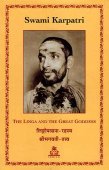Mayashakti, Māyāśakti, Maya-shakti: 3 definitions
Introduction:
Mayashakti means something in Hinduism, Sanskrit. If you want to know the exact meaning, history, etymology or English translation of this term then check out the descriptions on this page. Add your comment or reference to a book if you want to contribute to this summary article.
The Sanskrit term Māyāśakti can be transliterated into English as Mayasakti or Mayashakti, using the IAST transliteration scheme (?).
In Hinduism
Vaishnavism (Vaishava dharma)
Source: Pure Bhakti: Bhagavad-gita (4th edition)Māyāśakti (मायाशक्ति) refers to “external energy of Bhagavān, which influences the living entities to accept the false egoism of being independent enjoyers of this material world. There are three functions of māyā: pradhāna, which creates the illusory designations of the living entity; avidyā, which superimposes these designations; and vidyā, which removes them”. (cf. Glossary page from Śrīmad-Bhagavad-Gītā).
Source: Pure Bhakti: Bhajana-rahasya - 2nd EditionMāyāśakti (मायाशक्ति) or Mahāmāyā refers to:—The illusion-generating potency which is responsible for the manifestation of the material world, time and material activities. (Also see Māyā.). (cf. Glossary page from Bhajana-Rahasya).

Vaishnava (वैष्णव, vaiṣṇava) or vaishnavism (vaiṣṇavism) represents a tradition of Hinduism worshipping Vishnu as the supreme Lord. Similar to the Shaktism and Shaivism traditions, Vaishnavism also developed as an individual movement, famous for its exposition of the dashavatara (‘ten avatars of Vishnu’).
Languages of India and abroad
Kannada-English dictionary
Source: Alar: Kannada-English corpusMāyāśakti (ಮಾಯಾಶಕ್ತಿ):—[noun] the influence of ignorance that keeps a person from realising the truth.
Kannada is a Dravidian language (as opposed to the Indo-European language family) mainly spoken in the southwestern region of India.
See also (Relevant definitions)
Partial matches: Shakti, Maya.
Full-text: Mahamaya, Maya, Pradhana, Maka-mayacakti, Bahirangashakti, Radhika, Mulaprakriti, Kutastha, Kutasthapurusha, Saguna Brahman, Mayatattva, Shuddhetara, Avarana.
Relevant text
Search found 26 books and stories containing Mayashakti, Māyāśakti, Maya-shakti, Māyā-śakti, Mayasakti, Maya-sakti, Mayāśakti; (plurals include: Mayashaktis, Māyāśaktis, shaktis, śaktis, Mayasaktis, saktis, Mayāśaktis). You can also click to the full overview containing English textual excerpts. Below are direct links for the most relevant articles:
Cidgaganacandrika (study) (by S. Mahalakshmi)
Verse 235 [Yama is the consecrated King] < [Chapter 4 - Fourth Vimarśa]
Verse 258-259 [Śuddhavidyā liberates Śiva from limitations imposed by Māyāśakti] < [Chapter 4 - Fourth Vimarśa]
Verse 254-256 [Śakti as Nādarūpā] < [Chapter 4 - Fourth Vimarśa]
Shakti and Shakta (by John Woodroffe)
Chapter XIV - Cit-śakti (the Consciousness aspect of the Universe) < [Section 2 - Doctrine]
Chapter XVII - Śakti and Māyā < [Section 2 - Doctrine]
Chapter XIX - Creation as explained in the non-Dualist Tantras < [Section 2 - Doctrine]
Bhajana-Rahasya (by Srila Bhaktivinoda Thakura Mahasaya)
Text 6 < [Chapter 2 - Dvitīya-yāma-sādhana (Prātaḥ-kālīya-bhajana)]
Text 29 < [Chapter 2 - Dvitīya-yāma-sādhana (Prātaḥ-kālīya-bhajana)]
Text 11 < [Chapter 1 - Prathama-yāma-sādhana (Niśānta-bhajana–śraddhā)]
Brahma Sutras (Shankara Bhashya) (by Swami Vireshwarananda)
Chapter II, Section I, Adhikarana X < [Section I]
Shrimad Bhagavad-gita (by Narayana Gosvami)
Verse 7.14 < [Chapter 7 - Vijñāna-Yoga (Yoga through Realization of Transcendental Knowledge)]
Verse 7.6 < [Chapter 7 - Vijñāna-Yoga (Yoga through Realization of Transcendental Knowledge)]
Verse 5.16 < [Chapter 5 - Karma-sannyāsa-yoga (Yoga through Renunciation of Action)]
Puranic encyclopaedia (by Vettam Mani)
Related products
